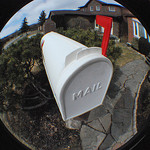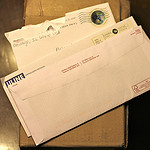Not a very original title for a blog post but it certainly conveys the message adequately! I’ve been on a bit of a reading binge lately. There’s just nothing like that excitement of finding a story that makes all your fingers and toes tingle.
I swear, it might be an addiction and why Literary Agents do the job we do!
And I’ve been reading lots of good stuff as of late. But nothing that is quite tipping me into the “must have” realm as yet. Part of what makes this job so fun is that the right manuscript could hit the inbox at any moment.
Adult Steampunk fantasy: PASS – good concept, solid world building, interesting opening scene. And these are the hardest letters for me to write, the story just didn’t spark for me. So not helpful for that hard-working writer but it’s true.
Young Adult SF: PASS – another interesting world, set on a ship, with a nice opening scene. No spark. Argh.
Adult Literary fiction: PASS – Writer has terrific background in journalism. Cool premise. Solid writing. Just couldn’t quite fall into the story and have it keep my attention. My focus kept wandering so I know this one is not for me.
Young Adult contemporary: PASS – Too gritty for me and I worried that the main character, his nature, was too dark and grim potentially for the YA market. I could be totally wrong but it’s a sign it’s not right for me.
Young adult contemporary SF: PASS – Another sample with good, solid writing. Interesting story concept. Author had an agent previously. I should be game for it but the narrative just didn’t spark for me.
Adult Commercial mainstream: PASS – Loved the premise. Solid writing but I actually wanted the writing to be more literary than what it was because the concept hook was so commercial. And for me, that was the way to really make the story stand out.
Fantasy Young Adult: PASS – was a bit on the fence with this one. Nice writing. Interesting fantasy world. Gave it a second read and found I wasn’t feeling passionate about wanting to commit to reading a full manuscript.
Adult SF: PASS – a funny science fiction narrative that works! (so rare.) Good writing. Charming and inventive. Just wasn’t quite right for me but I definitely see another agent taking this one on and selling it.
Young Adult contemporary: PASS – Such a great premise dealing with contemporary YA themes but writing was really uneven and a little too much force on “this is the theme of my novel.”
Adult historical: PASS – Author has great background with winning some accolades. Really liked the time period so sad with this one a bit and reread it. In the end, I felt like I should love it but didn’t actually love it.
Young adult historical: PASS – One of my fav genres and is a popular tale re-telling. Writing felt too stiff and formal (the emotion didn’t match the scene) I couldn’t quite lose myself in the story.
Middle Grade contemporary: PASS – I really wanted to like this one as concept was terrific. Voice didn’t quite nail it for middle grade. Read a bit too adult.
Adult Fantasy: PASS – Really interesting premise for the anti-hero who is main protagonist of the story. Too many fantasy tropes in the opening without enough of a distinctive voice to really make the opening stand out.
Middle grade fantasy: PASS – narrative voice was too adult for the MG audience. World building was a bit heavy in the opening as well. Thought maybe it could work for adult market but it as in the deadly gray area without it being firmly to one audience or the other.
Young adult contemporary: PASS – loved the multicultural aspect of the story. Author has great background as well. This one I just didn’t fall in love with the story and the narrative voice.









